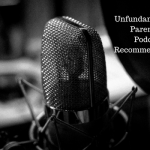
When the group of prophets at Jericho saw Elisha, they said, “Elijah’s spirit is now on Elisha!” They came to meet Elisha. They bowed very low to the ground before him… Elisha went from that city to Bethel. He was walking up the hill to the city, and some boys were coming down out of the city. They began making fun of him. They said, “Go away, you bald-headed man! Go away, you bald-headed man!” Elisha looked back and saw them. He asked the Lord to cause bad things to happen to them. Then two bears came out of the forest and attacked the boys. There were 42 boys ripped apart by the bears.
Many noble (and ignoble) attempts have been made to explain away or justify 2 Kings 2:23-4. The passage is overwhelmingly disturbing: God’s prophet Elisha, after being taunted by young children, asks God to punish them. Two bears appear and the boys are “ripped apart.” The scene is gruesome.
Some people try to justify the passage by debating the age of the children. Answers in Genesis, for example, says, “The vital question of concern to most here is the age of these ‘little children.’” But that really is not the vital question. In fact, it is entirely irrelevant. Even if these children were fully grown adults screaming obscenities, Elisha’s request—“cause bad things to happen to them”—is beyond the pale. In fact, it is the very opposite sentiment we see three chapters later in 2 Kings 5, where Naaman’s slave girl wishes that her slave master be free from the pain of leprosy. The forgiving, kind, and brave nature of that little girl is what sets in motion a dramatic chain of events, culminating in Elisha of all people healing the slave master. Yet here, three chapters prior, Elisha cannot be bothered to express even a fraction of that little girl’s godliness. Rather, he curses the children—the end result of which is that forty-two of them die.
My desire these days is to read the Bible with a view towards child liberation and child protection. This means I place the children at the center of the story. Doing so, I see a group of unregulated children acting out in an immature way. This is something children do. Children need guidance to learn what is right and wrong. But in this case, the adult becomes frustrated. And instead of being the mature person, the adult lashes out.
There are at least two ways we can interpret this story. First, we can assume that Elisha knew that his curse would result in bears tearing apart the children. If this is the case, there really is not much to say here. Elisha would be an evildoer. And he would not be the first person anointed by God for a divine mission who did evil. He would, rather, stand in a long line of God’s anointed who abused their positions.
If we read the story this way, filtering it through a child liberation and protection lens, it would be a reminder that we should never assume God’s anointed—our Christian pastors, youth group leaders, or celebrities—are safe people. They are just as capable of evil acts against children as anyone else.
But there is a second way to read the story: that Elisha was unaware that his curse would result in bears tearing apart the children. Rather, Elisha simply snapped, not intending for the resulting horror to occur. Taken this way, the story becomes a tragic morality tale for parents on how easy it is even for “good” people to slip up and become abusive when children are difficult. This second interpretation is what I want to focus on here.
We have this idea in our world that there are good parents and then there are abusive parents—that these are two distinct categories that rarely have any contact. And there certainly are evil parents, like child molesters and parents who lock their children in basements for years. But most parents do not wake up one day and decide they want to be abusers. When most types of abuse happen—like neglect and physical abuse, the two most common types—it is not because the parents are monsters or hate their children. It is because the parents become overwhelmed and behave poorly—just like Elisha did with the children around him.
Elisha was recently given a whole new set of responsibilities. Those responsibilities came with immense pressure. As the newly appointed prophet of the Almighty, perhaps he was feeling stressed. Perhaps he was even feeling self-conscious about his new role. Then along comes a bunch of children who bring up a sore subject: his baldness. Perhaps the taunting was the straw that broke the camel’s back. Moments like that happen everyday. One sees such moments when a child throws a tantrum in the supermarket and a parent who normally opposes spanking slaps the child. Or when a parent is so overwhelmed by poverty’s constricting grasp that they scream when their children fight with each other.
Consider the area of physical abuse. Child physical abuse is most often perpetrated by females. According to one study, “Female carers are more likely to physically abuse their children with 49% of incidents involving women compared to 40% involving men (May-Chahal and Cawson, 2005). This is partly due to the fact that women spend more time caring for children.” Why is it that those who spend more time with their children are more likely to abuse them? Because those who spend more time with children shoulder more of the difficulties that come with parenting. According to the Victoria State Department of Human Services, “Abuse and neglect occur most often in families who are under pressure and lack support. “ Or as Jeanette Harder writes in Let the Little Children Come:
Parents who abuse or neglect their children usually do not wake up in the morning with the intention of hurting their children. In fact, offending parents usually care a lot about their children, but they lack the skills or resources to parent them effectively. Some parents lack healthy parenting skills, perhaps because they have never been modeled for them. Many parents lack knowledge of child development and so have unrealistic expectations of their children. For example, two-year-old Jose has a toilet accident while playing on the playground. His mother harshly punishes him for this offense, not realizing that a two-year-old who is engrossed in play cannot be expected to sense and respond to the subtle signs of the need to seek a rest room. Abusive parents are often isolated and do not have a grandmother, neighbor, or friend to turn to when they have concerns or need a break from parenting (p. 22-3).
Parents who are raising children under mounting pressure and stress desperately need community. But they often do not reach out to their communities and ask for help. Additionally, people in their communities often do not take the initiative to offer help.
To be able to help, we need to let go of the idea that most child abusers are monsters so unlike ourselves. By saying this, I am neither saying we should equalize sin nor am I making the offensive suggestion that we are all like child abusers “at heart.” Rather, I am saying that child abusers are most often normal, everyday people. They could be living in your community right now. They could be people you love. And if we want to protect children and empower parents to parent better, we need to understand that the lines between abusive parenting, neglectful parenting, and good parenting are less like fences and more like solitary posts every few miles. Even the best of parents can slip up one day and do something they will regret for their entire lives. It can happen. It has happened.
If we want to fight child abuse, we need to know where to look. And we need to check our own emotions when we interact with children. Elisha was God’s appointed prophet. Yet even God’s appointed prophet, with the power of God behind him, abused his power in a moment of distress and sent bears after children. Even well-intentioned parents, in a moment of stress, can bear down on their children.
Parenting Resources
One of the best resources on this topic is the National Child Traumatic Stress Network’s handout, “Raising well-behaved kids: What parents should know.” It provides ideas for how parents can calm themselves so they do not lash out in anger. It also gives suggestions for how to parent more effectively so parents do not have to reach that moment of anger as often.
Another great resource is Prevent Child Abuse America’s handout, “Twelve Alternatives to Lashing out at Your Child.”
A good resource for troubleshooting a particular behavioral problem of a child is the Gundersen National Child Protection Center’s form, “Help for Behavior Problems of School-Aged Children (Without Spanking).”
If you are wondering about healthy parenting practices for a particular age group, the Centers for Disease Control and Prevention have guides. They also have general parenting resources.
Additional Note
If you are a parent who is feeling so overwhelmed and stressed that you are becoming terrified that you might hurt your children, please know you’re not alone. There is help available. You do not need to suffer silently until you explode and do something you regret. Child Protective Services (CPS) exist not simply to investigate allegations of child abuse; they also exist to protect families and connect them with needed resources. If you’re feeling you could be a risk to your children, you can call CPS and let them know your situation. They can set you up with needed help and empower you to be the parent you hope to be. I recently attended a certification class for Mental Health First Aid, and one of my instructors did this personally. He was worried his bipolar disorder would cause him to hurt his children, so he called the CPS and they helped him learn to cope with his mental illness as well as be a better parent.
Involving Children in the Story
Questions for younger children:
• Have you ever been teased, like how Elisha was teased by the boys? How did it make you feel?
• Have you ever felt so mad at someone that you wished you could send bears after them to eat them?
• What are some nicer ways Elisha could have expressed his anger towards the boys instead of sending bears after them?
Suggested activity: Have children role-play the story of Elisha and the children. Have them act out different ways Elisha could have responded that would have been more loving.
Questions for older children:
• Why do you think that, when people make us mad, we sometimes want to hurt them?
• Is it right to hurt people who hurt us?
• Do adults have the right to hurt children simply because they are adults?
• If you know of an adult who is hurting a child, what should you do?
Suggested activity: Have children brainstorm who in their lives they can talk to if an adult ever hurts them.












